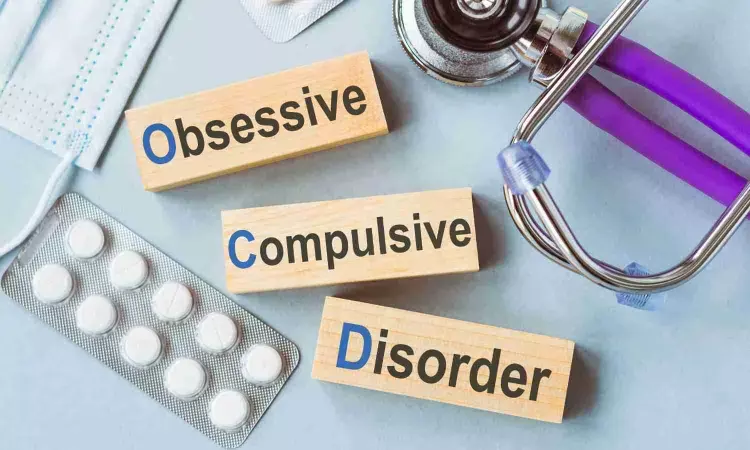- Home
- Medical news & Guidelines
- Anesthesiology
- Cardiology and CTVS
- Critical Care
- Dentistry
- Dermatology
- Diabetes and Endocrinology
- ENT
- Gastroenterology
- Medicine
- Nephrology
- Neurology
- Obstretics-Gynaecology
- Oncology
- Ophthalmology
- Orthopaedics
- Pediatrics-Neonatology
- Psychiatry
- Pulmonology
- Radiology
- Surgery
- Urology
- Laboratory Medicine
- Diet
- Nursing
- Paramedical
- Physiotherapy
- Health news
- Fact Check
- Bone Health Fact Check
- Brain Health Fact Check
- Cancer Related Fact Check
- Child Care Fact Check
- Dental and oral health fact check
- Diabetes and metabolic health fact check
- Diet and Nutrition Fact Check
- Eye and ENT Care Fact Check
- Fitness fact check
- Gut health fact check
- Heart health fact check
- Kidney health fact check
- Medical education fact check
- Men's health fact check
- Respiratory fact check
- Skin and hair care fact check
- Vaccine and Immunization fact check
- Women's health fact check
- AYUSH
- State News
- Andaman and Nicobar Islands
- Andhra Pradesh
- Arunachal Pradesh
- Assam
- Bihar
- Chandigarh
- Chattisgarh
- Dadra and Nagar Haveli
- Daman and Diu
- Delhi
- Goa
- Gujarat
- Haryana
- Himachal Pradesh
- Jammu & Kashmir
- Jharkhand
- Karnataka
- Kerala
- Ladakh
- Lakshadweep
- Madhya Pradesh
- Maharashtra
- Manipur
- Meghalaya
- Mizoram
- Nagaland
- Odisha
- Puducherry
- Punjab
- Rajasthan
- Sikkim
- Tamil Nadu
- Telangana
- Tripura
- Uttar Pradesh
- Uttrakhand
- West Bengal
- Medical Education
- Industry
Obsessive-compulsive disorder linked to heightened risk of death

People with obsessive-compulsive disorder (OCD) may have an increased risk of death from both natural and unnatural causes than those without the disorder, finds a study from Sweden published by The BMJ today.
The researchers point out that many of the natural causes of death are preventable, suggesting that better surveillance, prevention, and early intervention strategies should be implemented to reduce the risk of fatal outcomes in people with OCD.
OCD is typically a long term psychiatric disorder affecting about 2% of the population. It is characterised by intrusive thoughts, urges or images that trigger high levels of anxiety and other distressing feelings - known as obsessions - that the person tries to neutralise by engaging in repetitive behaviours or rituals - known as compulsions.
OCD is also associated with academic underachievement, poor work prospects, alcohol and substance use disorders, and an increased risk of death.
Previous studies on specific causes of death in OCD have mainly focused on unnatural causes (eg, suicide), but little is known about specific natural causes.
To fill this knowledge gap, researchers set out to estimate the risk of all cause and cause specific death in people with OCD compared with matched unaffected people from the general population and with their unaffected siblings.
Using data from several Swedish population registers, they identified 61,378 people with OCD and 613,780 individuals without OCD matched (1:10) by sex, birth year, and county of residence, and a further sibling group of 34,085 people with OCD and 47,874 without OCD.
Average age at OCD diagnosis was 27 years and groups were monitored for an average of 8 years from January 1973 to December 2020.
Overall, people with OCD had a higher death rate than matched individuals without OCD (8.1 versus 5.1 per 1,000 person years, respectively).
After adjusting for a range of potentially influential factors such as birth year, sex, county, migrant status, education and family income, people with OCD had an 82% increased risk of death from any cause.
The excess risk of death was higher for both natural (31% increased risk) and, particularly, unnatural causes of death (a 3-fold increased risk).
Among the natural causes of death, people with OCD had increased risks due to respiratory system diseases (73%), mental and behavioural disorders (58%), diseases of the genitourinary system (55%), endocrine, nutritional, and metabolic diseases (47%), diseases of the circulatory system (33%), nervous system (21%), and digestive system (20%).
Among the unnatural causes, suicide showed the highest risk of death (a nearly fivefold increased risk), followed by accidents (a 92% increased risk).
The risk of all cause death was similar in both women and men, although women with OCD had a higher relative risk of dying due to unnatural causes than men with OCD, likely due to the lower baseline risk among women in the general population, note the researchers.
In contrast, people with OCD had a 10% lower risk of death due to tumours (neoplasms).
This is an observational study, so can’t establish cause and the researchers point out that registry data only includes diagnoses made in specialist care. It’s also unclear whether the findings generalise to other settings with different populations, health systems and medical practices.
Nevertheless, this was a large study based on high quality national data, and the results remained largely unchanged after further adjustment for psychiatric conditions and family factors, suggesting that they withstand scrutiny.
As such, they conclude: “Non-communicable diseases and external causes of death, including suicides and accidents, were major contributors to the risk of mortality in people with OCD. Better surveillance, prevention, and early intervention strategies should be implemented to reduce the risk of fatal outcomes in people with OCD.”
Reference:
Fernández de la Cruz L, Isomura K, Lichtenstein P, Larsson H, Kuja-Halkola R, Chang Z et al. All cause and cause specific mortality in obsessive-compulsive disorder: nationwide matched cohort and sibling cohort study BMJ 2024; 384 :e077564 doi:10.1136/bmj-2023-077564.
Dr Kamal Kant Kohli-MBBS, DTCD- a chest specialist with more than 30 years of practice and a flair for writing clinical articles, Dr Kamal Kant Kohli joined Medical Dialogues as a Chief Editor of Medical News. Besides writing articles, as an editor, he proofreads and verifies all the medical content published on Medical Dialogues including those coming from journals, studies,medical conferences,guidelines etc. Email: drkohli@medicaldialogues.in. Contact no. 011-43720751


